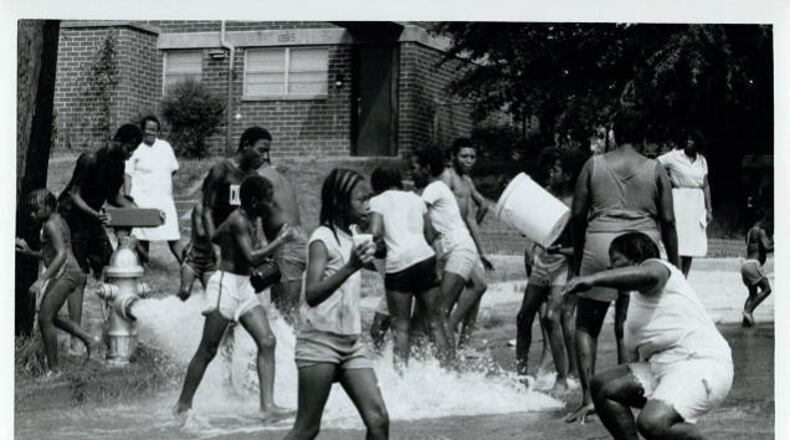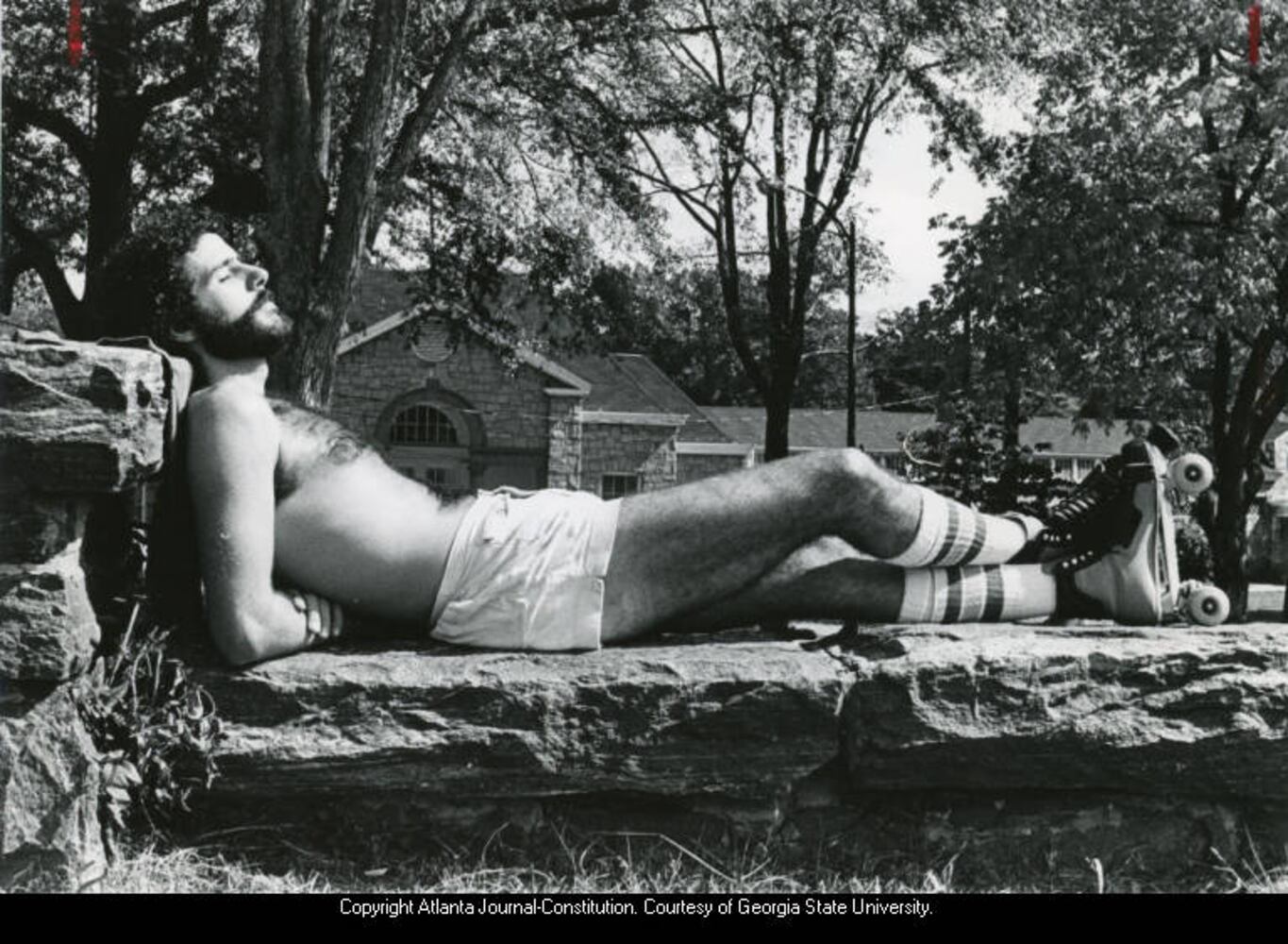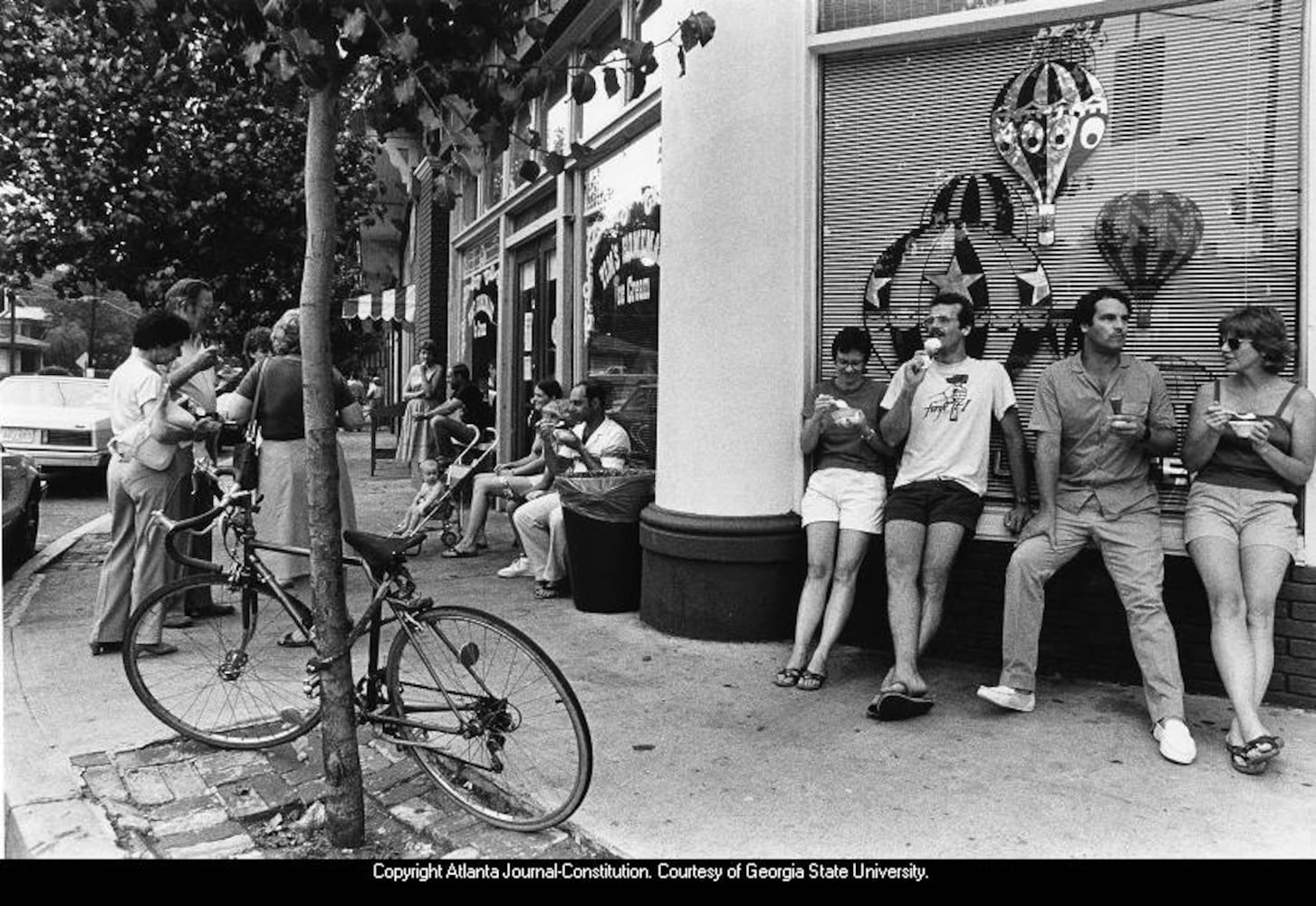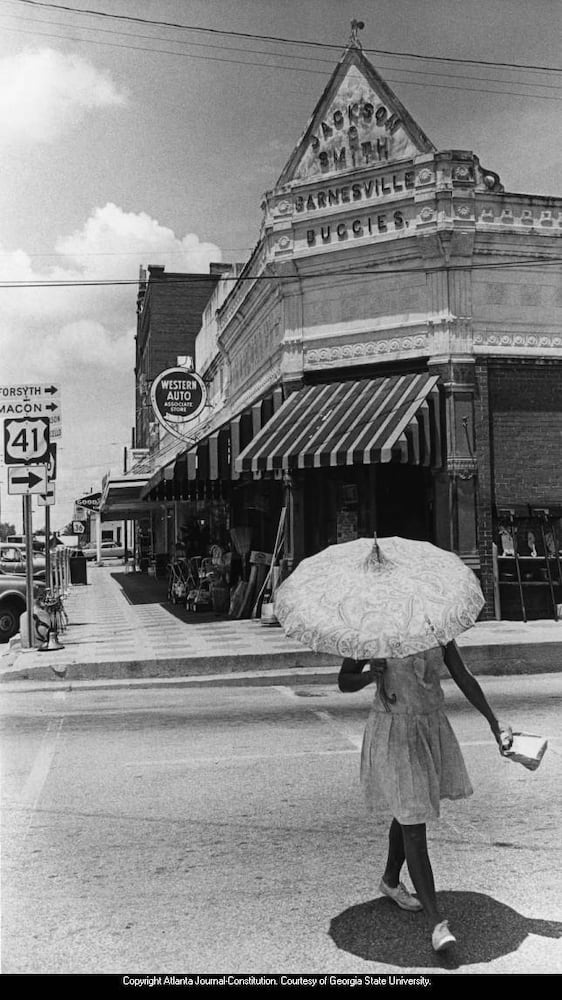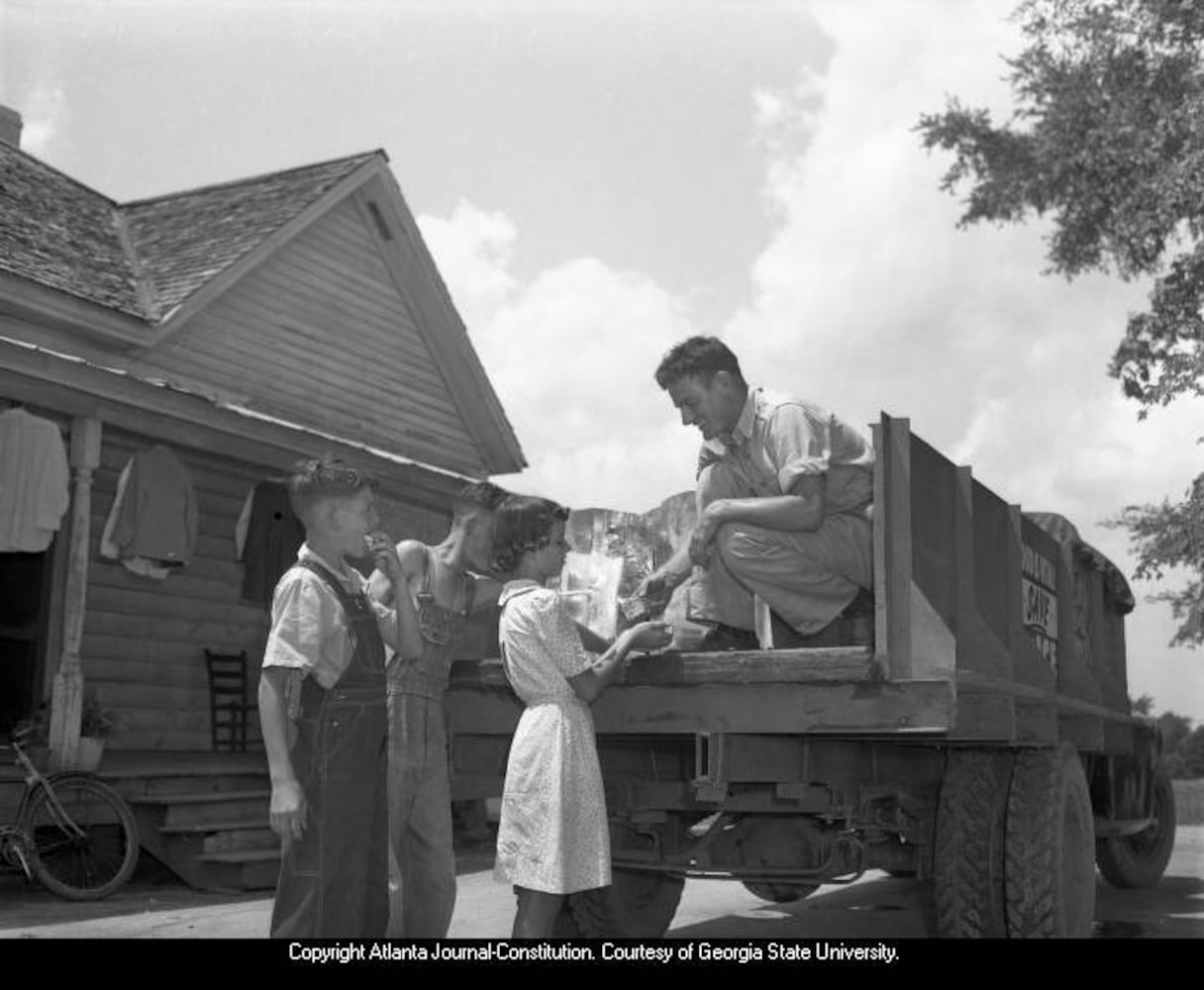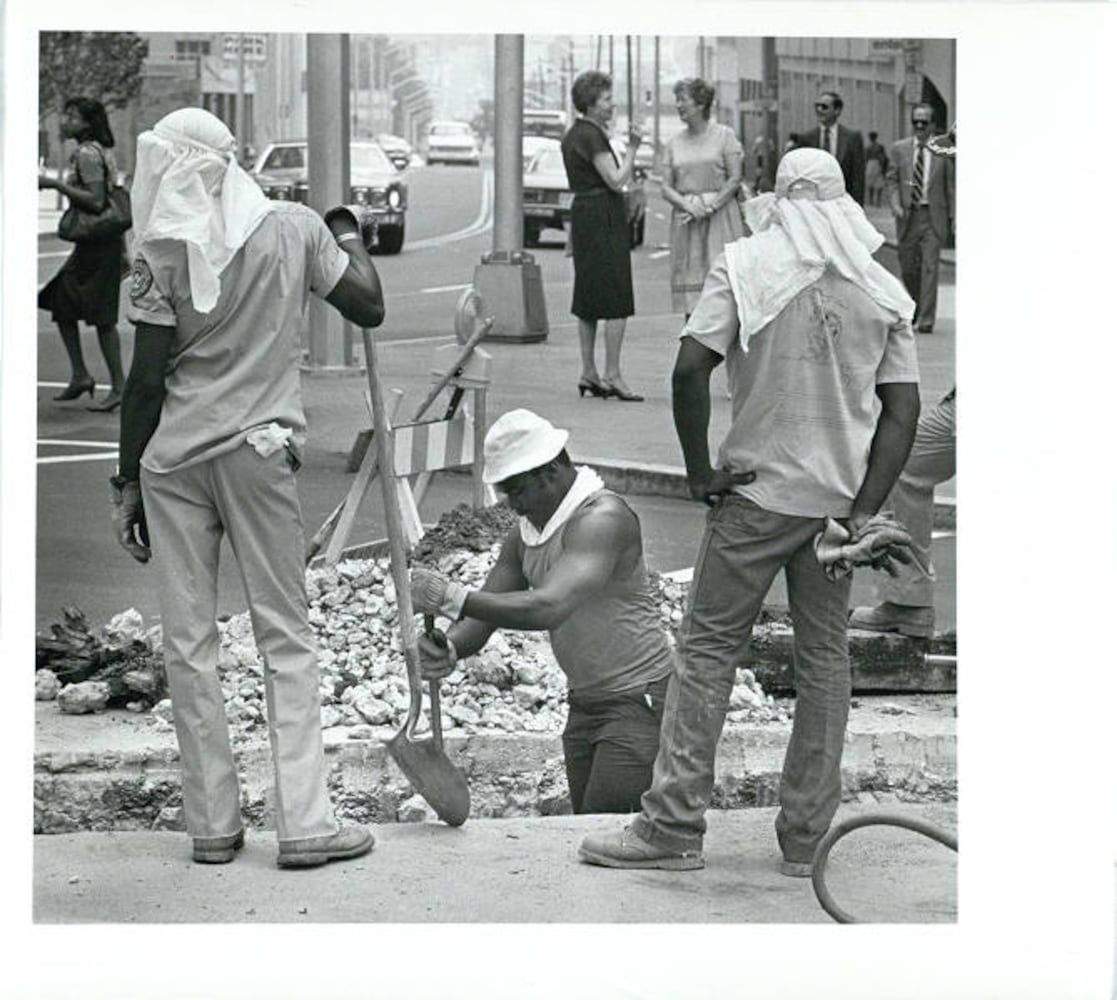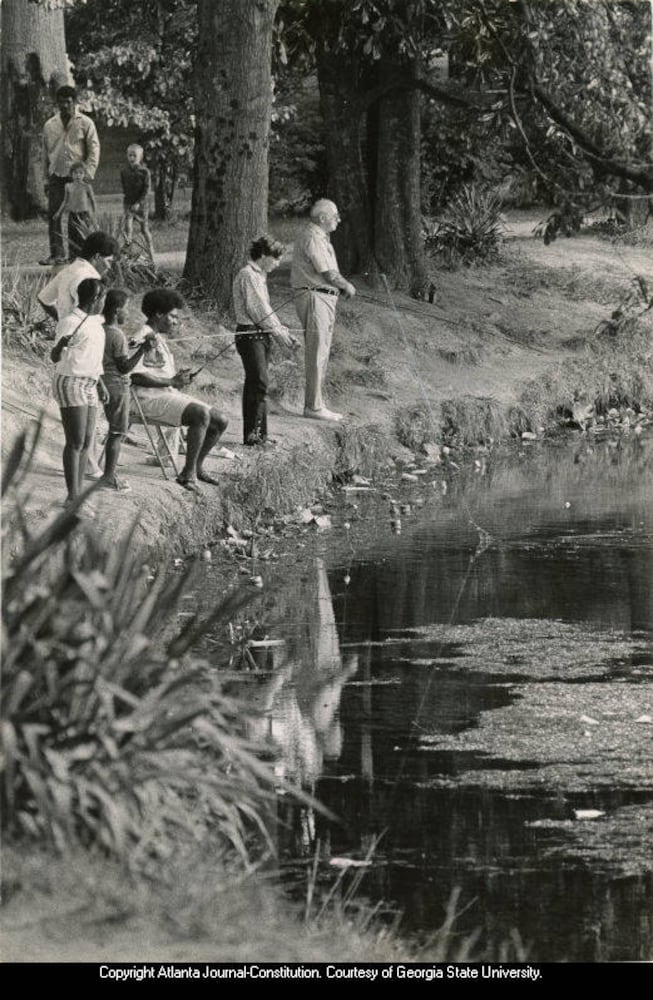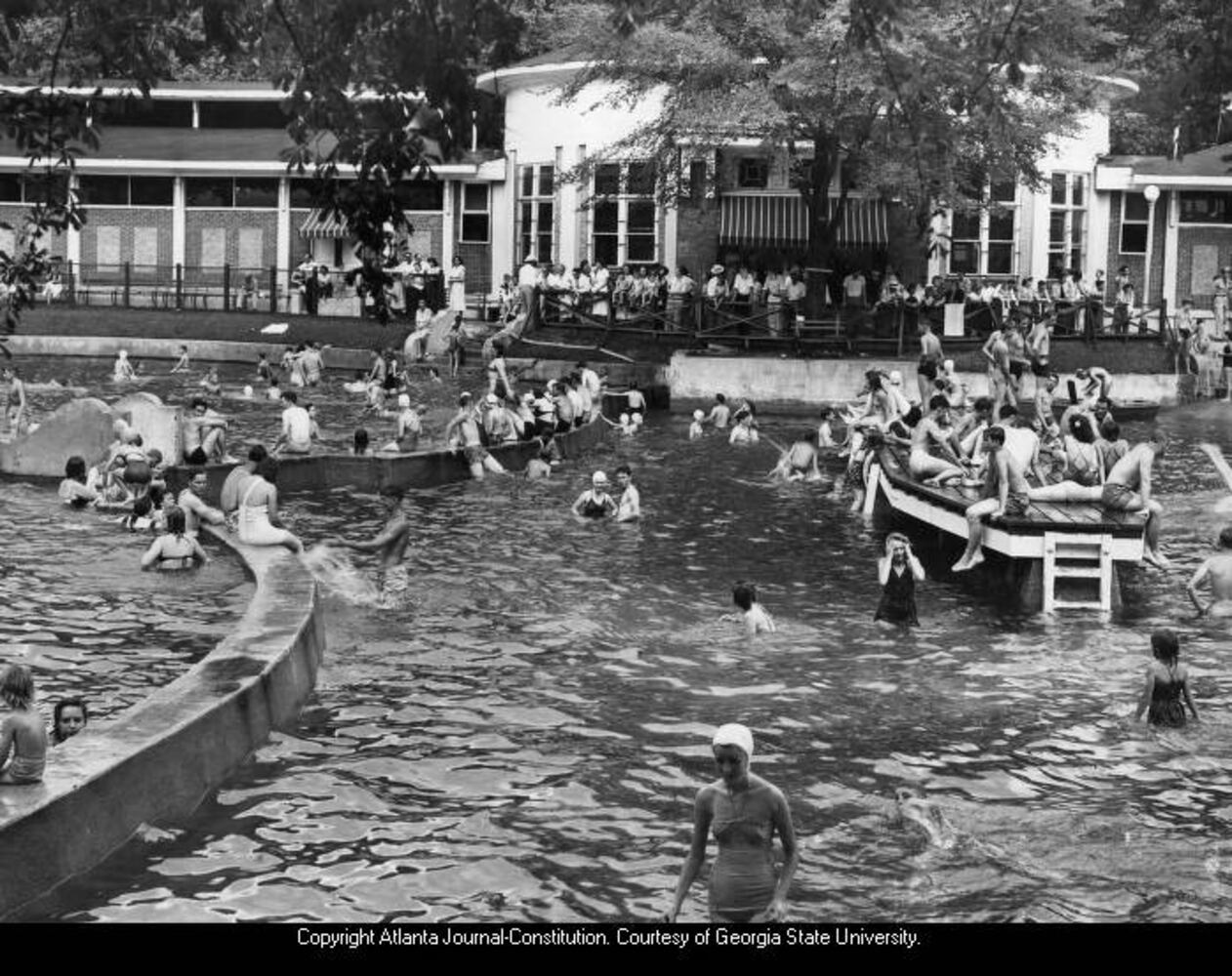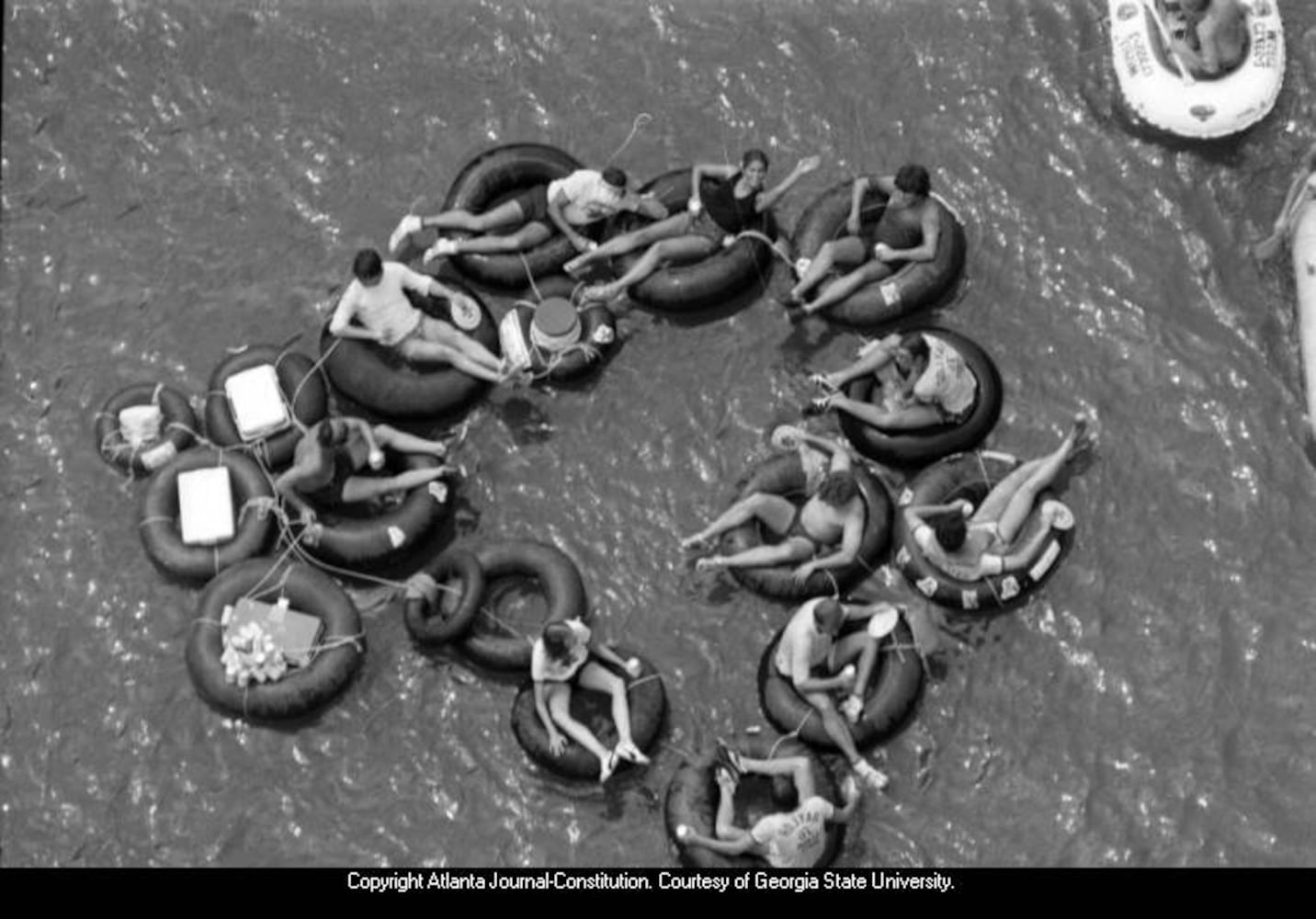Summer’s less than a month old, and it’s already been a hot one.
This year the AJC Peachtree Road Race ended under a “black flag” designation because it was deemed too dangerous for participants to continue.
High temperatures this week are edging toward 100. When the thermometer never retreats beneath “scorching,” the old saying “it’s hot enough to fry an egg” makes even fewer people laugh.
Such was the case in July 1980, a month in which Georgia and many other parts of the U.S. broiled under deadly summer conditions. In the Atlanta area, the National Weather Service recorded five days when temperatures hit triple digits.
“Death, drought and discomfort from a record-blasting heat wave continued the swath across the state through the weekend and showed no signs of letting up,” the Journal’s Liza Schlafly wrote in the Monday, July 14, edition. “Twenty-two more heat-related deaths during the weekend have raised the statewide toll to at least 33 since the dry, stifling air blanket covered Georgia two weeks ago.”
“Atlantans sweated under the hottest weather ever recorded for the city Sunday (July 13) as the mercury hit 105 degrees and 100-plus temperatures were forecast through Tuesday,” Schlafly continued.
Mayor Maynard Jackson’s “Beat the Heat” task force hastened to keep air conditioned public facilities open for longer periods so parched residents had places of refuge. The efforts came too late for three elderly Atlantans, all in their 80s, who died from the heat.
By Thursday, July 17, when the mercury once again hit 105, Governor George Busbee had declared a state of emergency in Georgia. The death toll statewide, according to the Journal, was “at least” 61. Nationally, the estimate stood at around 850 deaths.
“Temperatures peaked Wednesday at 104 degrees in Atlanta, the highest in the state,” Prentice Palmer and Schafly told Journal readers. “That broke the record for the date of 97 (in 1944) and was the second-highest temperature ever recorded in the city, after Sunday’s peak of 105.”
The alarming headline “Survey increases heat death toll to 85 in state” gave readers pause on July 19 as they either lingered over the Journal-Constitution at breakfast or perhaps used the paper as a much-needed fan. Statewide, 101 people ultimately died from the heat in 1980. Nationally, over 1,700 lost their lives. Last year, 27 Georgians died of heat-related causes, according to data from the Centers for Disease Control and Prevention.
Back in 1980, even those tasked with tracking the temperatures could offer little in the way of advice for regular folks, given the relentlessness of the heat and humidity around Atlanta. One forecaster, Harvey Hostetter, suggested an oldie but goodie for Constitution readers seeking a quick way to beat the heat.
“About all you can do is go swimming,” Hostetter said.
ABOUT DEJA NEWS
In this series, we scour the AJC archives for the most interesting news from days gone by, show you original articles and update the story. If you have a story you’d like researched and featured in AJC Deja News, send an email with as much information as you know.
About the Author
Keep Reading
The Latest
Featured
